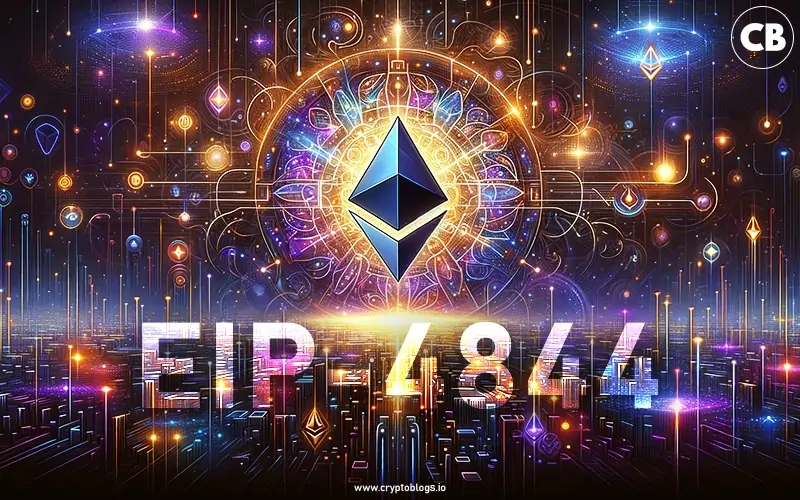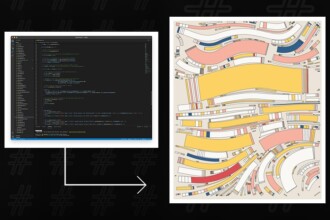As a hub for programable cryptocurrencies and smart contracts, Ethereum has undergone many upgrades since its inception in 2015. It is introduced with new updates, known as hard forks, every 8 or 12 months. These hard forks set major catalysts within the Ethereum ecosystem in the timeframe. The Dencun upgrade is one of these much-anticipated hard forks, which is expected to go live on the mainnet on March 13, 2024.
While the upgrade date has come closer, We will explore what Dencun is all about and what changes it will bring to Ethereum.
Ethereum Dencun Upgrade
The Ethereum Dencun hard fork is an upcoming upgrade on Ethereum that will improve the network’s data availability layer by implementing proto-danksharding. This will enable layer 2 networks and rollups to post data efficiently on Ethereum at a significantly reduced cost.
Dencun is an abbreviated word for Deneb – the alias for the upgrade – and Cancun – the city in which a live event for the upgrade will be hosted. Similarly, the previous upgrade Shapella was also named with the same method (Shanghai-Capela), which went live on Ethereum mainnet in April 2023.
In the Ethereum Dencun upgrade, Ethereum’s consensus layer and execution layers will be implemented with a number of improvements prepared by independent developers. The main focus among all of these implementations is proto-danksharding.
According to the Ethereum roadmap available on the official website, this is the initial step towards making Ethereum truly scalable by making layer 2 transactions less expensive while improving TPS significantly.
But what proto-danksharding is and how it will upgrade Ethereum? Let’s understand;
What is Proto-danksharding (EIP-4844)
Proto-danksharding is one of the improvement proposals in the Ethereum Dencun upgrade that introduces a new transaction framework called “blob-carrying transactions” on Ethereum. This proposal is discussed in EIP-4844 which aims to make posting data on Ethereum more cheaper.
Rollups currently use Calldata to upload transactions, which are permanently stored on Ethereum. This comes at a certain cost as 90% of a rollup transaction fee is due to data staying on Ethereum forever. Using blob-carrying transactions, all these fees are eliminated and rollups are offered with an inexpensive method for communicating with the base layer. Hence, the translations on Ethereum rollups will come at a significantly reduced cost.
This upgrade is an important milestone toward Ethereum’s scalability goals. The functionality of proto-danksharding will help Ethereum achieve a TPS of over 100,000 while reducing the overall cost of data uploading. As the number of Ethereum rollups has increased lately, the Dencun upgrade is considered a major move for the future of the Ethereum ecosystem.
Blob Transactions on Ethereum
A blob is a temporary block that refers to the data of rollup transactions. This data is stored on the Ethereum consensus layer and has a validity of approximately three weeks. As a blob would have a hash of all bundled transactions within, the data verification will only require the hash rather than posting all transactions simultaneously.
This method of publishing data on Ethereum is more efficient as posting calldata will require more space. The implementation of blob-carrying transactions is expected to make rollup transactions 10x cheaper.
Other EIPs in Ethereum Dencun Upgrade
Besides proto-danksharding (EIP-4844), there are several other EIPs for security, cost-efficiency, and staking improvements. For those not familiar with Ethereum jargon, EIP stands for Ethereum Improvement Proposal.
Below is the list of EIPs coming to Ethereum Dencun upgrade;
EIP-6780
EIP-6780 is a developer-centric advancement in SELFDESTRUCT opcode. This opcode is used to remove unnecessary code from a smart contract to reduce deployment costs. After the implementation of EIP-6780, the SELFDESTRUCT will only work if it is included in the same transaction of contract creation.
EIP-5656
This EIP is also for developers that introduce a new opcode MCOPY to the Ethereum code base. With the implementation of EIP-5656, developers will be able to use MCOPY opcode in smart contracts which will make copying memory more efficient. Currently, it requires developers to use MSTORE and MLOAD memory opcodes which cost at least 96 gas while MCOPY will make it nearly 26.
EIP-1153
EIP-1153 also introduces another set of opcodes TLOAD and TSTORE for developers to use mid-term memory functionality while executing complex transactions. It enables accessing temporary memory for all function calls within the transaction.
EIP-4788
EIP-4788 implementation is beneficial for liquid staking and restaking protocols. It seeks to incorporate a parent beacon block root into the execution layer for introducing an oracle-like structure. This will eliminate the need for aggregating data on consensus states for providing oracles.
EIP-7514
EIP-7514 is focused on the validator bloating. This implementation will propose a temporary solution by maximizing the churn limit to 8 for a validator set.
EIP-7044
This improvement proposal makes voluntary exit possible for delegated stakers. It also adds the functionality of removing inactive validators which directly concerns to consensus layer.
EIP-7045
EIP-7045 extends the maximum inclusion slot for attestations from one rolling epoch to two non-rolling epochs. This change allows validators more time to include their attestations in a block, increasing the security and robustness of Ethereum’s PoS consensus mechanism.
Final Words
Ethereum Dencun is successfully implemented on all Ethereum devnet and testnet. It was expected to go live on mainnet in late 2023 but several issues relating to consensus and deployment led to rescheduling the release in Q1 2024. Now this hard fork will potentially hit the Ethereum mainnet on 13th March.
The anticipation around the Ethereum Dencun upgrade has also remarkably affected the Ethereum (ETH) price amid the buzz of the next bull run. ETH price broke $3,000 for the first time after April 2022.
FAQ
What is a blob transaction on Ethereum?
Blob transitions or blob-carrying transactions are new types of transactions on Ethereum which makes it easy for rollups to post data on the Ethereum mainnet.
What is the Ethereum Dencun upgrade?
Dencun upgrade is a hard fork that will introduce proto-danksharding on Ethereum. It is set to go live on mainnet in March 2024.
What is proto-danksharding?
Proto-danksharding is an initial step of danksharding on Ethereum which refers to the overall improvement of the Ethereum network’s scalability







